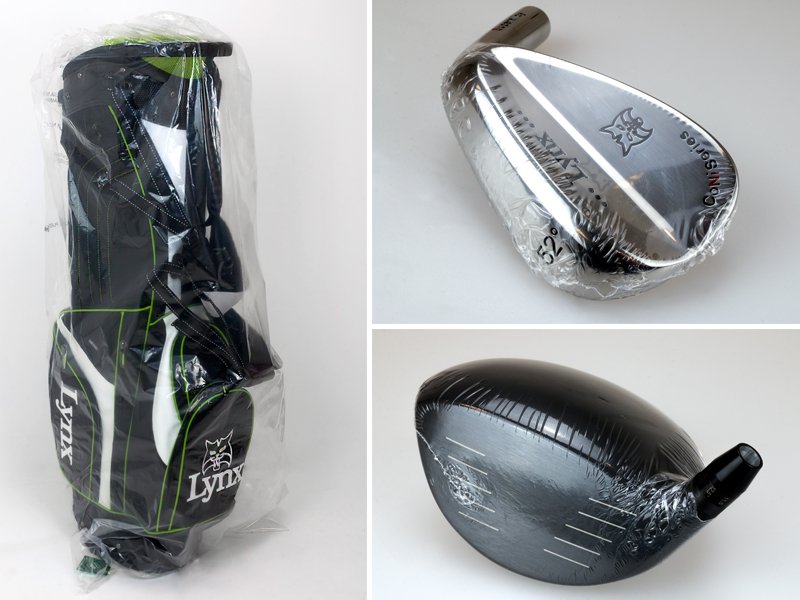Lynx Golf Move To Plastic Free Packaging

Subscribe to the Golf Monthly newsletter to stay up to date with all the latest tour news, equipment news, reviews, head-to-heads and buyer’s guides from our team of experienced experts.
You are now subscribed
Your newsletter sign-up was successful
Want to add more newsletters?

Delivered daily
Daily Newsletter
Sign up for all the latest tour news, gear reviews, head-to-heads and buyer’s guides plus features, tips from our top 50 coaches and rules advice from our expert team.

Once a week
Kick Point
Sign up to our free Kick Point newsletter, filled with the latest gear reviews and expert advice as well as the best deals we spot each week.

Once a week
Women's Golf Edit
Sign up to our free newsletter, filled with news, features, tips and best buys surrounding the world of women’s golf. If you’re a female golfer, you won’t want to miss out!
British-based Lynx Golf is set to become the first golf equipment company to move to plastic free packaging for its clubs, bags and accessories
British-based Lynx Golf is set to become the first golf equipment company to move to plastic free packaging for its clubs, bags and accessories.
The Surrey company currently exports its equipment around the world, and has set itself a bold target of removing single-use plastics from its supply chain by August 1st.
The environmentally friendly initiative will set Lynx back over £30,000 this year, with the money spent on alternatives for single-use plastics and to increase plastic recycling resources in the business.
Lynx Golf CFO Stephanie Zinser told GM: “Among our staff, we have over 42 children and a few grandchildren. We want them to have a world in which they can live safely, healthily and happily. There is no doubt that Sir David Attenborough’s ‘Blue Planet’ TV series really made the world sit up and think long and hard about our use of plastics and the damage they are having on the environment.
“The golf equipment business is not unique. Although its use of single-use plastics might not be as obvious as in other industries, they appear all along the supply chain. At Lynx Golf we are determined to remove them.”
To achieve its plastic free packaging goal, Lynx has made several key changes, including using paper rather than polyethylene to wrap and protect its golf bags, It will also replace the plastic bubble wrap used to help golf bags keep their shape with recycled paper wadding and replace its plastic parcel tape with reinforced gummed paper tape.
Subscribe to the Golf Monthly newsletter to stay up to date with all the latest tour news, equipment news, reviews, head-to-heads and buyer’s guides from our team of experienced experts.
Lynx Golf will also stop cellophane shrink-wrapping all of its clubheads. Zinser added: “When trying to replace the shrink-wrap we use on our clubheads, we had sourced an alternative material which is made purely from cellulose, and which is completely biodegradable into harmless elements. However, in its current form it’s not quite there. We will keep working on the best alternatives, but we’d rather have nothing than something that is either not really biodegradable, or that is, but doesn’t quite look good enough. We are therefore using other – greener – methods to hold the golf clubheads in place during transit and shipping, and this comes at additional cost to the business.”